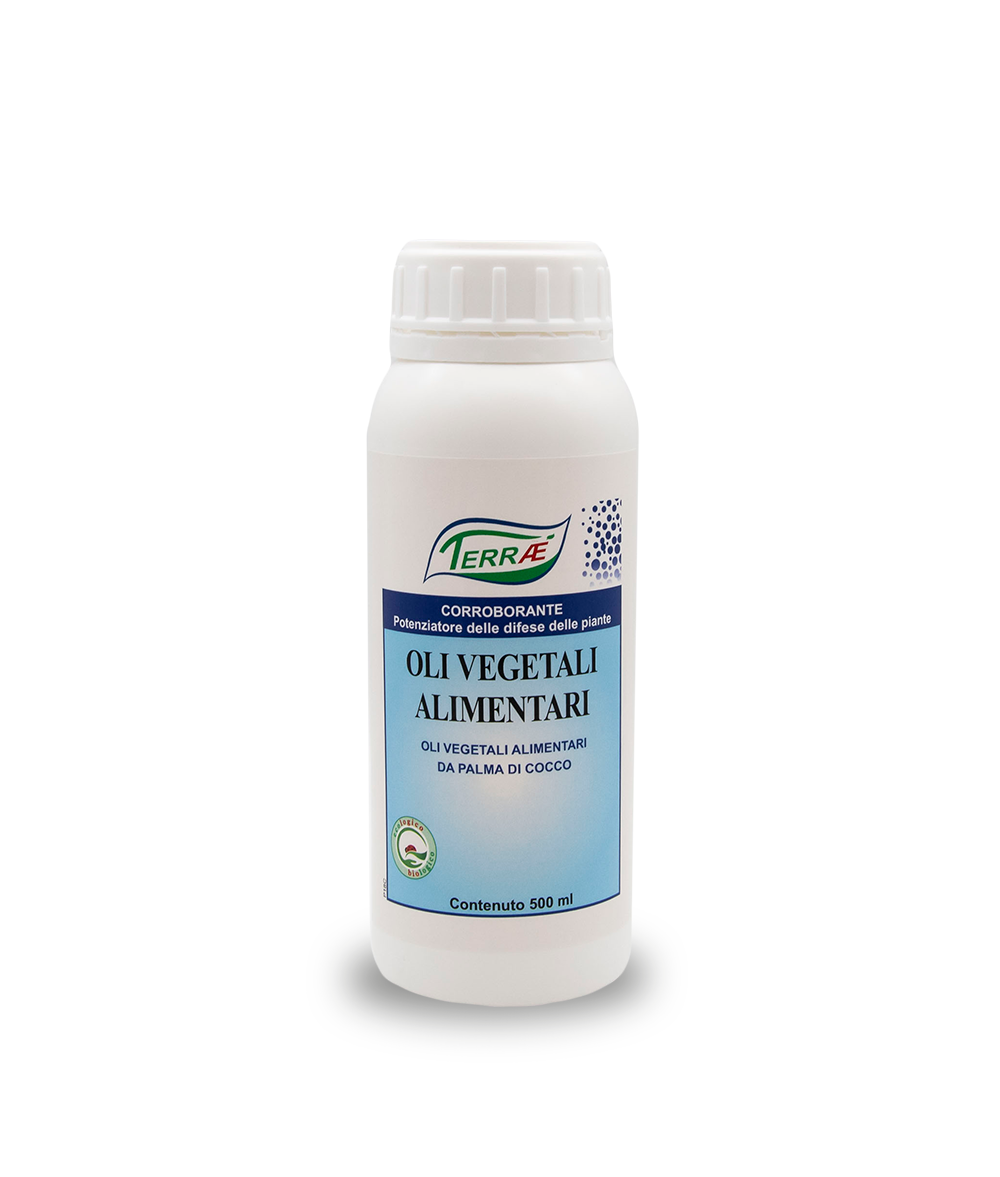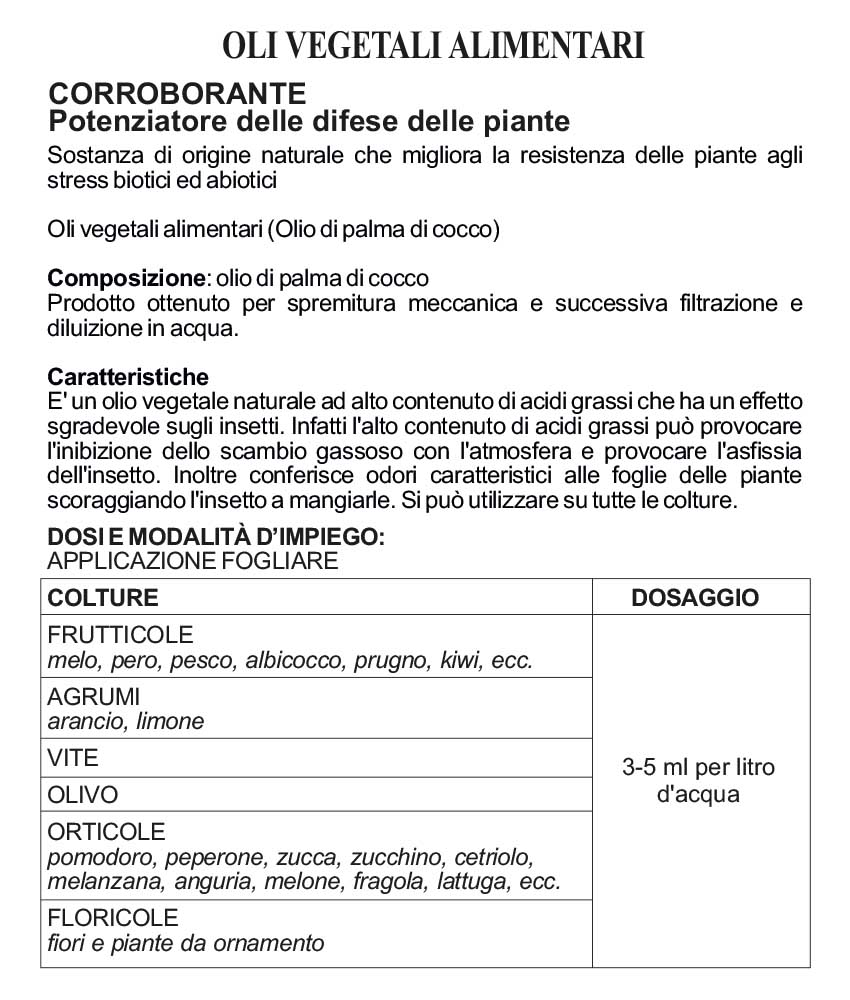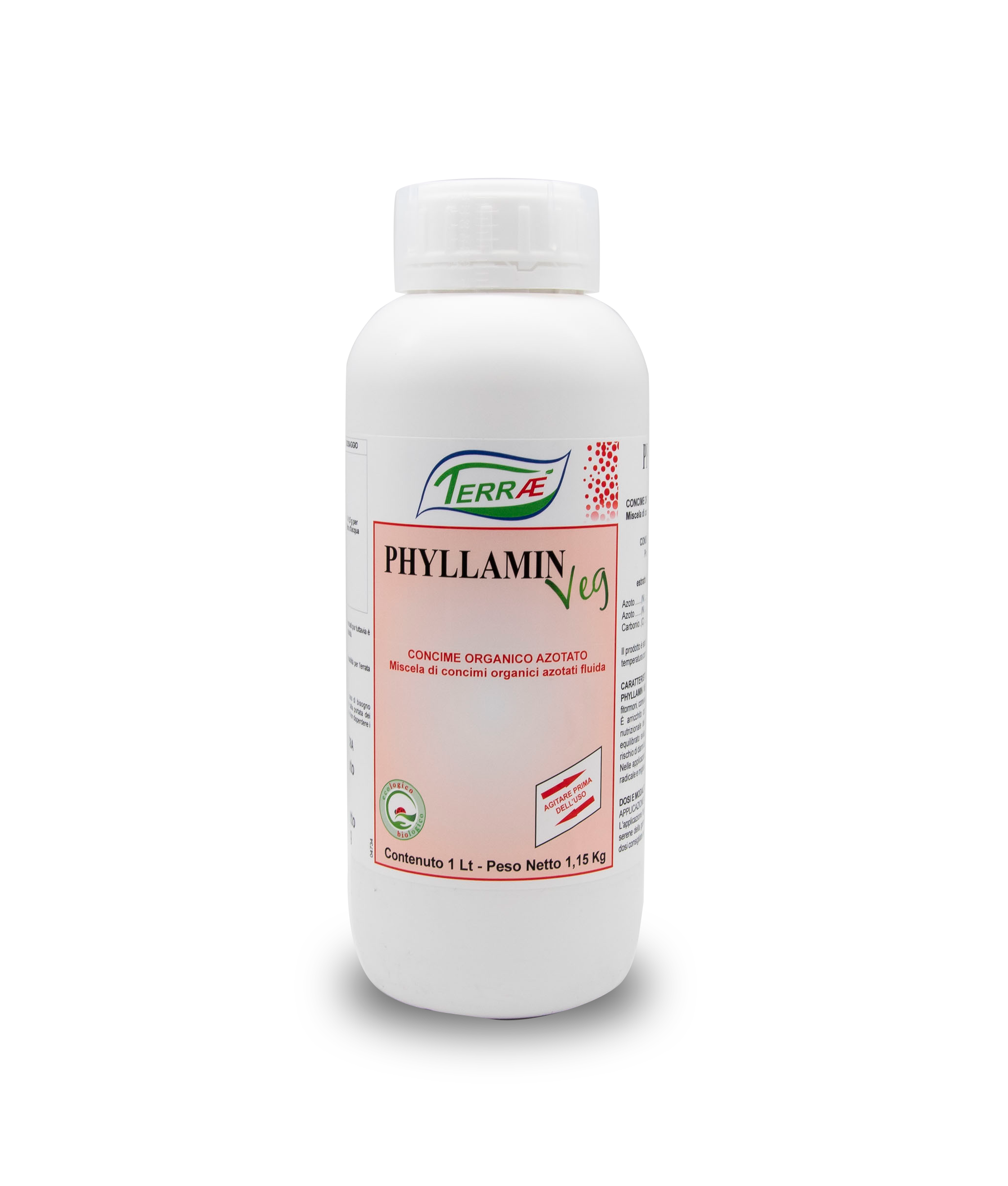- Home
- /
- Products
- /
- Terraè Natural Fertilizer
- /
- Organic fertilizers
- /
- Oli Vegetali
Oli Vegetali
Food Vegetable Oils Coconut palm is a natural tonic for plants, enhancer of plant defenses, indicated as an adjuvant in the fight against aphids, thrips, mites and whiteflies, on all crops. Recommended for apple, peach, apricot, cherry, orange, lemon, olive, tomato, courgette, lettuce, cucumber, pepper, carrot, etc.
CORROBORANT AND DEFENCE ENHANCER ALLOWED IN ORGANIC AGRICULTURE
23,80 €
Out of stock
| FORMAT | 500 ml |
|---|---|
| BRAND | Terraè |
| GUY | Fertilizzante |
Characteristic
AFRICA is a natural vegetable oil with high content of fatty acids that has an unpleasant effect on insects. In fact, the high fatty acid content can cause the inhibition of the gaseous exchange between the insect and the atmosphere eventually suffocating it. It also gives characteristic flavour to the leaves of plants, discouraging the insect from eating them. It can be used on all crops.
| Description | % |
|---|---|
| Coconut palm oil | 80 |
| Product deriving from mechanical extraction and treated exclusively with physical processes. |
Doses and methid of use
The best results are obtained by applying coconut palm oil during the early hours of the day or the last hours in the after- noon. If there are bees working on pollination, it is advisable to apply it in the afternoon or at night. To achieve greater effectiveness, the application must achieve complete coverage of the leaves and it is necessary that the solution meet the insect. If there are not a lot of insects one application every 10÷12 days is recommended whereas when there are many parasites apply the product every 7 days. It can be applied with any type of spray, both manual or automatic, both air and terrestrial. The application must be done by foliar. Before applying the product, It is preferable to wait at least 10 days after the crop has been transplanted.
| Culture | Dosage |
|---|---|
| Fruit | 0.3 ml/m2 – 0.6 ml/m2 |
| Citrus fruits | 0.3 ml/m2 – 0.6 ml/m2 |
| Grapevine | 0.3 ml/m2 – 0.6 ml/m2 |
| Olive tree | 0.3 ml/m2 – 0.6 ml/m2 |
| Open field vegetables | 0.3 ml/m2 – 0.6 ml/m2 |
| Greenhouse vegetables | 0.3 ml/m2 – 0.6 ml/m2 |
| Floriculture | 0.3 ml/m2 – 0.6 ml/m2 |
| Industrial crops | 0.3 ml/m2 – 0.6 ml/m2 |







